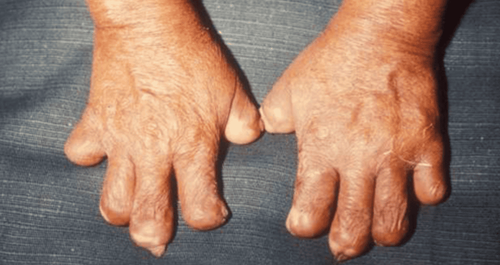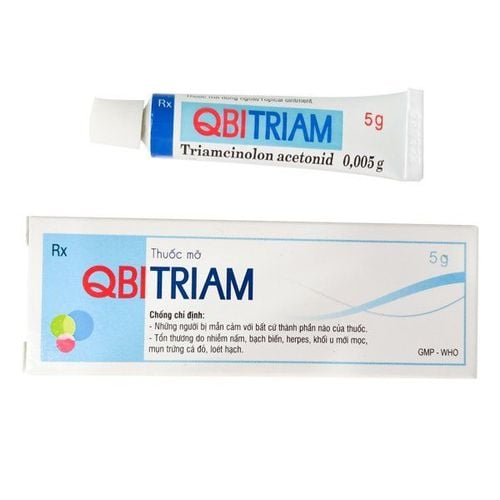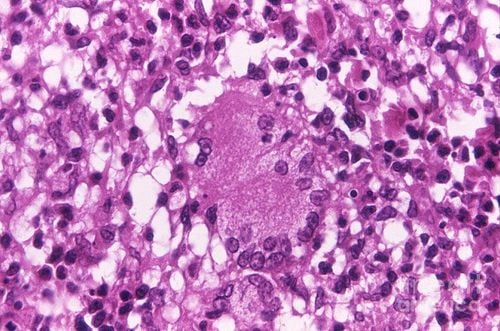This is an automatically translated article.
The article was professionally consulted by Specialist Doctor I Tran Van Sang - Dermatologist - Department of Medical Examination & Internal Medicine - Vinmec Danang International General Hospital.Leprosy, leprosy or Hansen's disease was once considered an incurable disease with no cure and affected psychologically and spiritually because of social stigma, as well as the patient's health, because of changes Symptoms of the disease cause deformity of limbs, loss of working capacity. However, today there is a cure for the disease and early detection of the disease, early treatment leaves no sequelae.
1. What is leprosy?
Leprosy is a chronic, infectious disease caused by the bacterium Hansen (Mycobacterium Leprae). The disease usually has clinical manifestations mainly in the skin, which is a white, red skin rash and damage to the nerves causing loss of sensation in the skin and limbs...Leprosy causes skin ulcers and lesions Nerve damage, muscle weakness. If the patient is not treated properly, serious complications will occur such as body deformity, even disability.
Leprosy is one of the diseases that have existed for a long time in human history. According to some of the earliest written references, leprosy first appeared around 600 BC. Currently, leprosy has come and developed in many countries, especially countries located in tropical or subtropical climates.
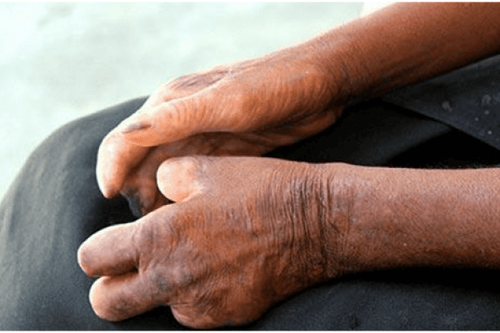
2. Common symptoms of leprosy
When infected with Mycobacterium Leprae and infected with leprosy, patients will have very clear symptoms such as:Moles, patches, white, red or brown lumps on the skin. Peripheral nerve damage causes loss of sensation in the affected area. cause muscle weakness, weakness in limbs. Paralysis of limbs The common secondary complications are : Ulcers of the soles of the feet. Storks deform fingers and toes due to bone loss. Rabbit's eyes: The eyes are open and cannot be closed.

3. Is leprosy contagious?
Leprosy is contagious is a common question many people are aware of the danger of this disease. And very unfortunately, the answer is yes. Leprosy is contagious, but it spreads very slowly and is rarely contagious.Leprosy bacteria exist mainly in secretions of the upper respiratory tract such as nose and throat and secretions from skin wounds. Therefore, the disease can be spread in the following two ways.
3.1. Respiratory transmission
For people with untreated leprosy, each day, on average, this person can release about 100 million leprosy bacilli out through the airways and secreted through secretions in the nose and throat.When exposed to the outside environment, leprosy bacteria can survive for a long time, even up to 1-2 weeks. In particular, the darker the environment, the stronger the activity of this strain of bacteria. Therefore, being in contact with or staying in the area of a person with leprosy for a long time will make the risk of infection extremely high.

3.2. Transmission by contact
Besides infection through the respiratory tract, leprosy bacilli can also be spread by direct contact. People who share personal items such as clothes, towels, dishes, etc. or have direct contact with leprosy patients are at high risk of infection.However, the bacteria that cause leprosy have a very slow growth rate. The average incubation period of the disease is 5 years, or even, in some cases, symptoms of the disease do not appear for 20 years after infection. In addition, leprosy is also very difficult to spread and the infection rate is very low.
4. Serious complications from leprosy
Delayed diagnosis and treatment can lead to serious complications for the patient. These may include:Deformity of the limbs of the body. Hair loss, especially in the eyelash and eyebrow area. Muscle weakness, permanent nerve damage in the arms and legs, even disabled limbs, complete paralysis. Chronic stuffy nose, frequent nosebleeds, and a collapsed septum. Iritis., unable to close the eye. Glaucoma - a type of eye disease that damages the optic nerve, even causing the patient to go blind.
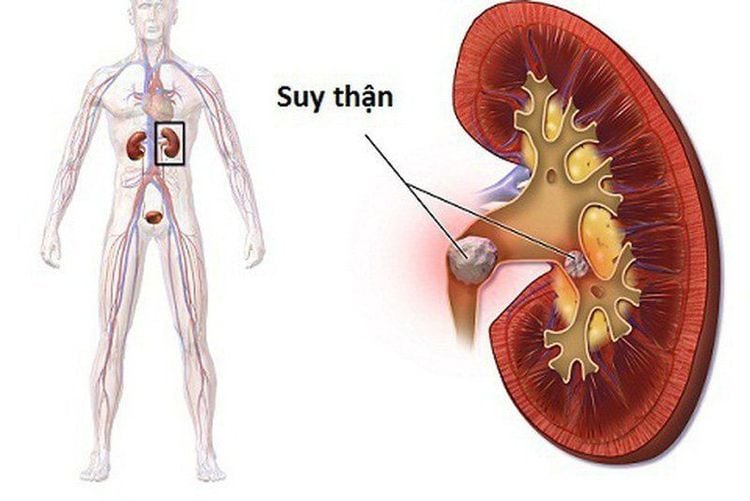
5. Can leprosy be treated?
Leprosy was once considered as one of the four incurable diseases and has caused many ages to accept its strong development. However, by 1941, when Americans began to apply multi-chemotherapy (Combining many drugs in a course of medicine) in medical treatment, leprosy was controlled optimally, quickly cutting off the source of the disease. spread and opened a new trend for leprosy eradication globally.In Vietnam, leprosy has been eliminated since 2000 because the prevalence is less than 1/1000 of the total population. It can be seen that the treatment of the disease is no longer a big problem thanks to the technology of multi-chemotherapy combined with physical therapy, which helps to cure the disease, prevent disability and minimize the spread of the disease. .
In addition to multi-chemotherapy, drugs are also a common method used to treat mild forms of leprosy. The course of medication can last from 6 to 12 months depending on the condition of each person. Currently, drugs to treat leprosy are often provided free of charge to patients and the most common are antibiotics such as Rifamicin, Clofazimin, Dapsone.

6. How to prevent leprosy?
Although the current infection rate is very low, to be safe, you need to have a sense of prevention. Here are some tips:Do not share dishes or personal items of someone who is sick. Limit direct contact with nasal secretions, saliva... of the patient. In case of contact, it is necessary to use antiseptic agents to wash the skin immediately. Wash hands thoroughly before and after handling/caring for sick people. Do not expose areas of broken skin in front of the patient's area. Thus, the question of whether leprosy is contagious has been specifically answered by the article, along with methods of treatment - prevention of the disease. You need to take it seriously to minimize the risk of infection for yourself and your family.
Periodic health check-ups help to detect diseases early, so that there are treatment plans for optimal results. Currently, Vinmec International General Hospital has general health checkup packages suitable for each age, gender and individual needs of customers with a reasonable price policy, including:
Health checkup package diamond general health check-up package Vip special health check-up package Comprehensive general health check-up package Standard general health check-up package Patient's examination results will be returned to your home. After receiving the results of the general health examination, if you detect diseases that require intensive examination and treatment, you can use services from other specialties at the Hospital with quality treatment and services. outstanding customer service.
Please dial HOTLINE for more information or register for an appointment HERE. Download MyVinmec app to make appointments faster and to manage your bookings easily.






